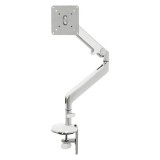Farm Machinery Explained: Essential Aspects
Understanding the essential aspects of farm machinery is key to maximizing agricultural productivity and efficiency. Farm machinery encompasses a wide range of equipment used in agricultural operations, from tractors and combines to planters and harvesters. Each machine serves a specific purpose and plays a crucial role in the agricultural production process.
This article will delve into the essential aspects of farm machinery, exploring their functions, importance, and impact on agricultural operations. By understanding these aspects, farmers and agricultural professionals can optimize their machinery choices and practices to enhance productivity and profitability.
Functions and Importance of Farm Machinery
Farm machinery serves various critical functions in agricultural operations, including:
- Tilling and preparing soil for crop planting
- Planting seeds and seedlings
- Fertilizing and spraying crops
- Harvesting crops
- Processing and storing agricultural products
By automating these tasks, farm machinery significantly increases labor efficiency and reduces production time. It also enables farmers to manage larger and more complex operations, resulting in higher crop yields and overall profitability.
Types and Applications of Farm Machinery
Farm machinery is categorized into different types based on its function and application, including:
- Tractors: Provide power for pulling and operating other farm implements.
- Combines: Harvest and thresh grains, such as wheat and barley.
- Planters: Plant seeds or seedlings in rows or specific patterns.
- Harvesters: Harvest fruits, vegetables, or nuts from crops.
- Sprayers: Apply fertilizers, pesticides, or herbicides to crops.
Selecting the right type of farm machinery for each operation is crucial to ensure efficiency and productivity.
Technological Advancements and Impact
Technological advancements have significantly influenced the development and use of farm machinery. Modern farm equipment is equipped with advanced technologies that enhance performance and efficiency, including:
- GPS guidance: Ensures accurate planting, spraying, and harvesting operations.
- Variable-rate technology: Adjusts application rates of fertilizers and pesticides based on crop needs.
- Remote monitoring: Allows farmers to monitor machinery performance from anywhere.
These technological advancements have led to increased productivity, reduced operating costs, and improved crop quality.
Conclusion
Understanding the essential aspects of farm machinery is essential for farmers and agricultural professionals to maximize productivity and efficiency. By leveraging the right types of machinery, incorporating technological advancements, and implementing best practices, farmers can optimize their operations, increase crop yields, and ensure the sustainable production of food and other agricultural products.

Learn Farm Equipments Names What You Need For Implements

What Type Of Equipment Do Farmers Use To Plant

Learn Farm Equipments Names What You Need For Implements

Learn Farm Equipments Names What You Need For Implements

Farm Implement Equipment In Agricultural Crop Ion

Automated Farming New Agriculture Automation Methods Progressive Automations

Not Your Grandpa S Farm Equipment How John Deere Global It Initiatives Are Helping To Revolutionize The Farming Industry Built In National

Agricultural Machinery Wikipedia

Farm Tools And Equipment By Iron Morales

Autonomous Farm Tractors The Future Of Farming Bear Flag








